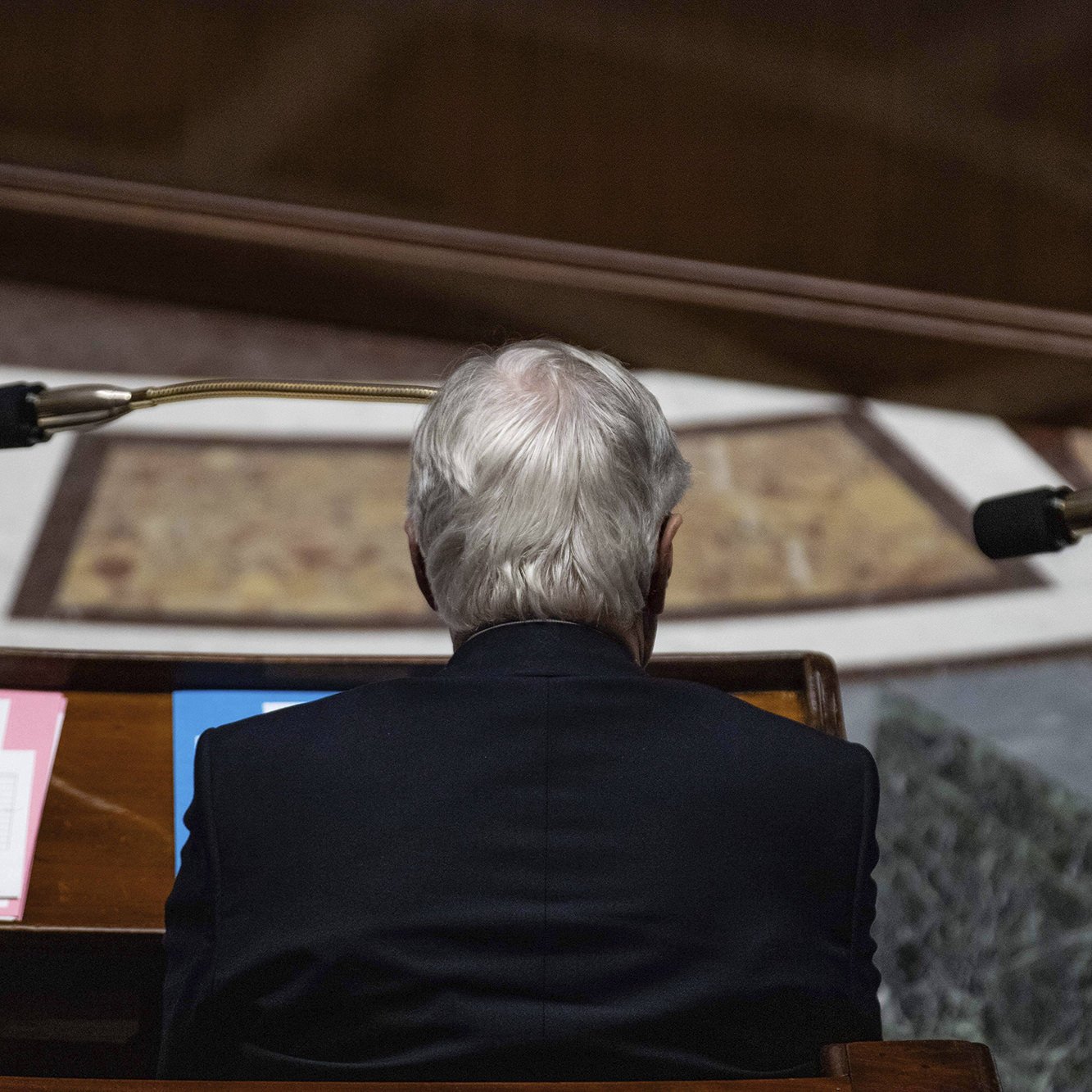Au Revoir!
What’s happening in France?
DECEMBER 5, 2024
State of the World features occasional dispatches on the latest news, events, and ideas. To receive these updates directly in your inbox, sign up for our newsletter.
Former Prime Minister Barnier during yesterday’s debate and vote on the censure motion in the National Assembly in Paris (OLIVIER JUSZCZAK/SIPA via AP Images)
After France’s prime minister was ousted in a vote of no confidence on Wednesday, The Dial asked editor-in-chief (and France correspondent) Madeleine Schwartz what’s next for the country.
THE DIAL: French Prime Minister Michel Barnier’s government was brought down in a no-confidence vote this week, after only a very short stint in office. What happened?
Madeleine Schwartz: French politics have been on shaky ground since this summer’s snap elections. Both the left-wing coalition (which had the largest number of votes as a bloc) and the far-right National Rally (which had the largest number of votes as a party) considered themselves winners, which would mean that they would shape the government. In the end, President Emmanuel Macron instead chose Michel Barnier as prime minister, a member of a center-right party that had done very poorly.
Barnier put together a new budget for 2025, one that was bound to make people unhappy: It had 40 billion euros’ worth of cuts. Because there wasn’t enough support, he tried to pass a budget bill using a constitutional tool that allows the executive branch to push through legislation without the necessary votes. This prompted the no-confidence vote.
THE DIAL: How significant is it that the left-wing bloc in the parliament and Marine Le Pen’s far-right National Rally united to topple the government? What’s in it for her?
MS: It’s a moment of weakness for Macron, who’s been president since 2017, and everyone’s trying to jump into the fray. For Le Pen, the stakes may feel particularly urgent. Her party has gone from right-wing pariah to winning 41% percent of the presidential vote; but the clock might be ticking. She and her party are on trial for embezzlement, and she could soon be barred from running for office again.
THE DIAL: How far back does the current political crisis go, and why are both the right and the left so unhappy with Macron’s leadership?
MS: Macron’s popularity has been waning for some time, and his government has been increasingly reliant on the constitutional tool that got Barnier in trouble. The president’s maneuvering after July’s election only increased the sense that he operates without regard for other parties — or for voters.
THE DIAL: How is the French media covering the moment? What is the overarching mood?
MS: Many French media are very right-wing, and often push a nativist, anti-immigration agenda. (We ran a great piece about this in The Dial!) But it’s also distressing to see how much the past few months have legitimatized Le Pen and the National Rally, both because they have grown in popularity and because her party — once on the fringes — is now fully included in negotiations. The newsstands around Paris currently feature huge ads for a new right-wing magazine with Le Pen and her deputy standing proud with the tagline “2027 with an open heart,” referring to the next presidential election.
THE DIAL: Macron is now facing calls for resignation. How likely do you think it is that he will step down? What could happen next?
MS: If he doesn’t resign (which he has little reason to do) he’ll have to find a new PM soon. That will be tough. It took Macron two months to form a government that only lasted three.
THE DIAL: Before the vote, Macron told lawmakers that “the country faces a deep moral, economic, financial and civic crisis” and urged them not to cause further unrest. What is the biggest crisis the country faces now?
MS: Macron’s evocation of a civic crisis may be more prescient than he meant. Many of his unpopular reforms, including a pension reform last year to raise the retirement age, were passed unilaterally; he’s seen as distant from voters’ concerns. The fact that the government should tumble speaks to the paternalism of French political culture, where politicians’ expectation that any change will be met by protest means they often don’t actually listen to their constituents. It’s not healthy for a democracy if people feel that their government is ignoring them.
THE DIAL: What is the most common thing that non-French media get wrong about the country’s politics and the current crisis, or simply don’t pick up on?
MS: I’m often surprised at the difference with which Macron is regarded in the English-language press, where he’s often described as a strategic reformer, and the way he’s seen in France. This has been particularly striking since the war in Ukraine, during which many of his speeches for an international audience have been about the importance of a strong and united Europe and France’s role on the world stage. The imminent Trump presidency makes these questions more pressing. You can’t run Europe if you can’t run France.
This interview has been updated.





